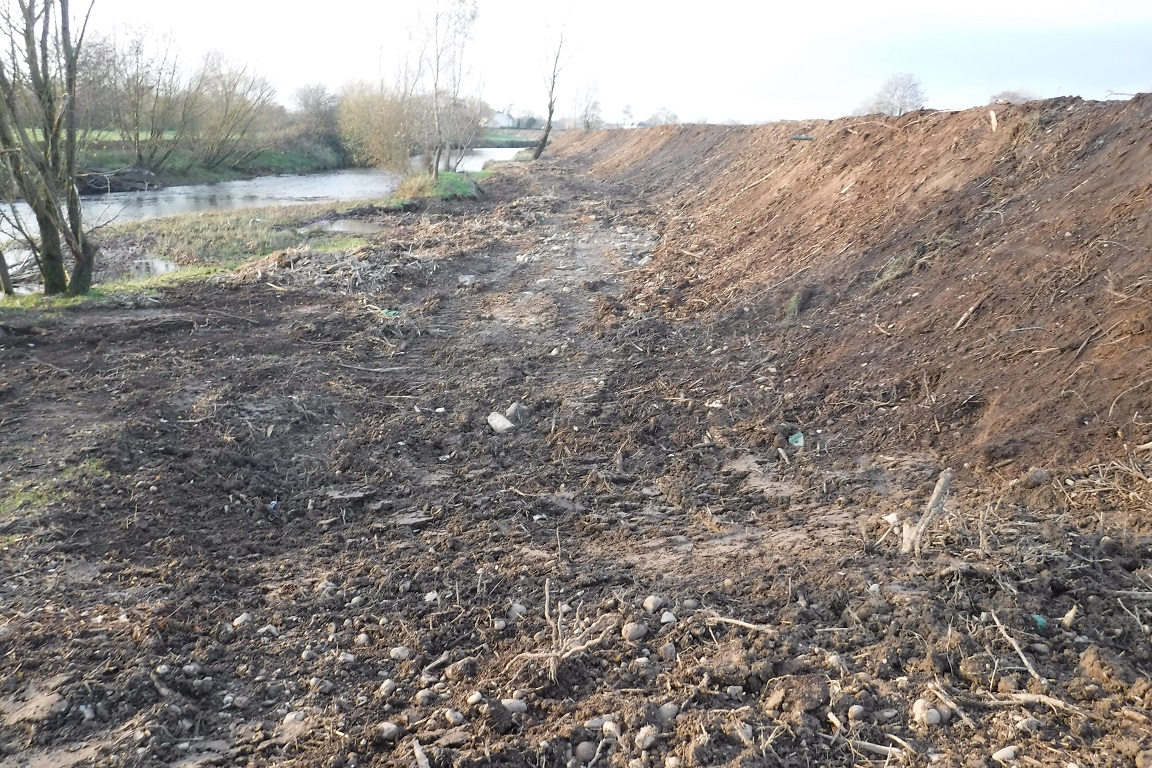
The Irish Wildlife Trust (IWT) has accused the Office of Public Works (OPW) in acting unlawfully when clearing a 3km stretch of river habitat along the River Newport in Co. Limerick last year. The Newport is part of the Lower River Shannon Special Area of Conservation and is designated of European importance for river forests as well as its populations of Atlantic Salmon, Otter and Lamprey. Under the Habitats Directive (article 6.3) works can only be undertaken when a ‘screening for Appropriate Assessment’ has concluded that significant effects to the SAC are not likely to occur. Where this assessment finds that such effects cannot be ruled out, the competent authority is obliged to carry out a ‘full Appropriate Assessment’ which must impose mitigation measures (e.g. avoiding pollution or restricting works to certain seasons) so that the overall integrity of the SAC is not affected. The OPW is not exempt from these provisions.
The use of heavy machinery inside a protected SAC area, under any circumstances, is highly likely to trigger a full Appropriate Assessment. In this case, a screening report – released to the IWT only after a request under Access to Information on the Environment legislation – showed that the area of works contained alien invasive species (Himalayan Balsam, Japanese Knotweed and Giant Hogweed), high-value wet Willow woodland and Otter habitat. It stated: “Apart from some young trees, no large trees will be fully removed, with generally only a small portion of such trees being impacted upon” and that “In no instances will the rootballs of trees be removed”. The report also stated that “Apart from very minor localised sediment run-off and occasional partial removal of aquatic vegetation, there will be no impact on the watercourses”. This assessment should have triggered a full Appropriate Assessment given that it identified that significant effects to the SAC were likely to occur in the absence of mitigation measures.
Last December (2018) the IWT visited the Newport River after reports that large sections of the river bank had been removed as part of ‘flood relief’ works carried out by the OPW (see photos). It was clear from this survey that works had greatly exceeded what had been set out in the OPW’s assessment report. Contrary to their report, entire stretches of the riverbank had been stripped down to bare soil, leaving the river extremely vulnerable to sediment pollution and erosion. There was no evidence of any mitigation measures having been employed either to avoid this pollution or to prevent the spread of alien invasive species. The Appropriate Assessment Screening Report was therefore largely inaccurate, reached the wrong conclusion and no Appropriate Assessment determination had been carried out by the OPW for these works. The works were therefore entirely unlawful.
IWT Campaigns Officer, Pádraic Fogarty, says: “The OPW is not above the law but yet it seems to think that it can operate with impunity. The damage it has done to our rivers is incalculable, this instance at the Newport in Limerick is not untypical of the distain they show for our natural heritage.”
